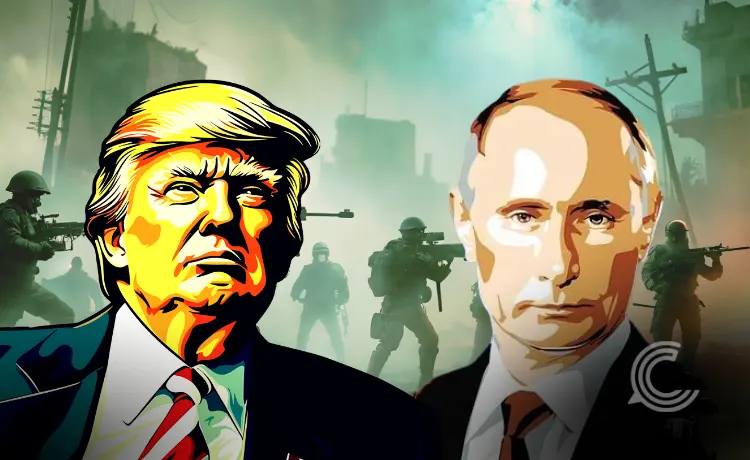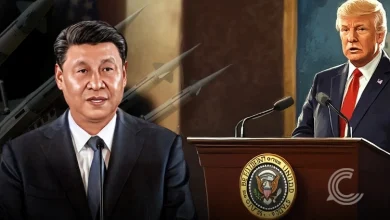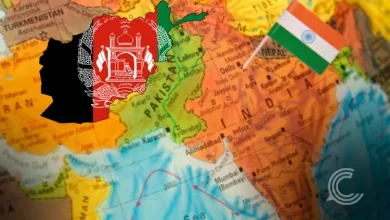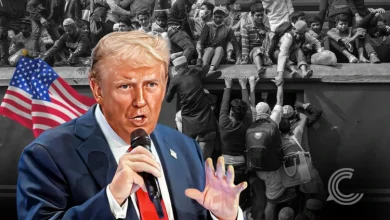Trump–Putin Meeting Canceled Over Russia’s Maximalist Ukraine Demands

- The planned Trump-Putin meeting in Budapest, intended to discuss a ceasefire in the Ukraine war, was canceled by the U.S. side.
- The decision was prompted by a formal memo from Moscow reiterating “maximalist” Russian demands, including territorial concessions and guarantees on NATO.
- The failure to even convene a high-level Trump Putin meeting suggests that a quick diplomatic resolution to the conflict is currently unattainable, challenging President Trump’s public assurances.
The highly anticipated Budapest summit between U.S. President Donald Trump and Russian President Vladimir Putin has been canceled following a hardline memo from Moscow, signaling a significant setback for diplomatic efforts to end the war in Ukraine. The development immediately raises questions about the viability of President Trump’s repeated pledge to swiftly broker peace.
Moscow Memo Triggers Cancellation
The cancellation of the proposed meeting, which was scheduled to take place in Hungary, was a swift and stark reversal of diplomatic momentum. President Trump and President Putin had agreed by telephone to meet in Budapest to explore a ceasefire in the ongoing conflict in Ukraine, reportedly with Trump favoring a freeze along current front lines.
However, the plan unraveled almost immediately after Russia’s foreign ministry sent a diplomatic note to Washington.This memo reportedly restated Moscow’s uncompromising conditions for peace, which included territorial concessions from Ukraine, a significant reduction of Ukraine’s armed forces, and a guarantee that Ukraine would never join NATO.
Reported by The Financial Times, the memo made it clear that Moscow’s fundamental demands, which address what President Putin calls the “root causes” of the invasion, remain non-negotiable.
The Breakdown of Dialogue
U.S. officials reportedly called off the summit after reviewing these conditions. A subsequent tense call between Russian Foreign Minister Sergei Lavrov and U.S. Secretary of State Marco Rubio further solidified the view that Russia was showing “no willingness to negotiate” on realistic terms, according to sources familiar with the exchange.
One source cited in The Economic Times stated that President Trump “was not impressed with their position”.The Russian demands were deemed “maximalist” by U.S. officials, demonstrating an uncompromising posture that precluded any constructive high-level dialogue in the near term.
Implications for Trump’s Peace Pledge
The abrupt cancellation carries significant weight for President Trump’s central foreign policy promise: ending the war in Ukraine, which he has repeatedly suggested he could achieve “within a day” of returning to office.
The failure to even hold a Trump Putin meeting highlights the immense gap between Moscow’s entrenched positions and any internationally acceptable peace framework. It suggests that any peace process will not be achievable through personal chemistry or a quick “grand bargain,” but only through complex, painful, and likely protracted negotiations.
The cancellation, in effect, forces a moment of reckoning for the administration’s diplomatic strategy. While the White House has stated that a future summit is not “completely off the table,” President Trump himself has signaled growing frustration with the lack of progress, stating he did not want to have a “wasted meeting”.
Russia’s Intransigence and the Geopolitical Climate
The timing also coincided with increased military posturing, including Russia’s successful testing of nuclear-powered weapons. Moscow’s hardline stance, including its refusal to consider a ceasefire that does not involve major Ukrainian territorial concessions, has intensified tensions and heightened the possibility of a prolonged conflict.
European allies, many of whom were anxious about the implications of a swift “land-for-peace” deal that might legitimize Russian occupation, may view the cancellation as a positive, albeit fragile, pause. The initial proposal of the summit had exposed transatlantic strategic divergences, with many European capitals maintaining the principle that international borders cannot be changed by force.
Axing of the Trump-Putin meeting highlights the immense complexity of the conflict and the limits of high-level personal diplomacy when core national interests are perceived to be non-negotiable. The geopolitical reality, as confirmed by the Moscow memo, appears to have grounded the President’s diplomatic aspirations, at least for now.



